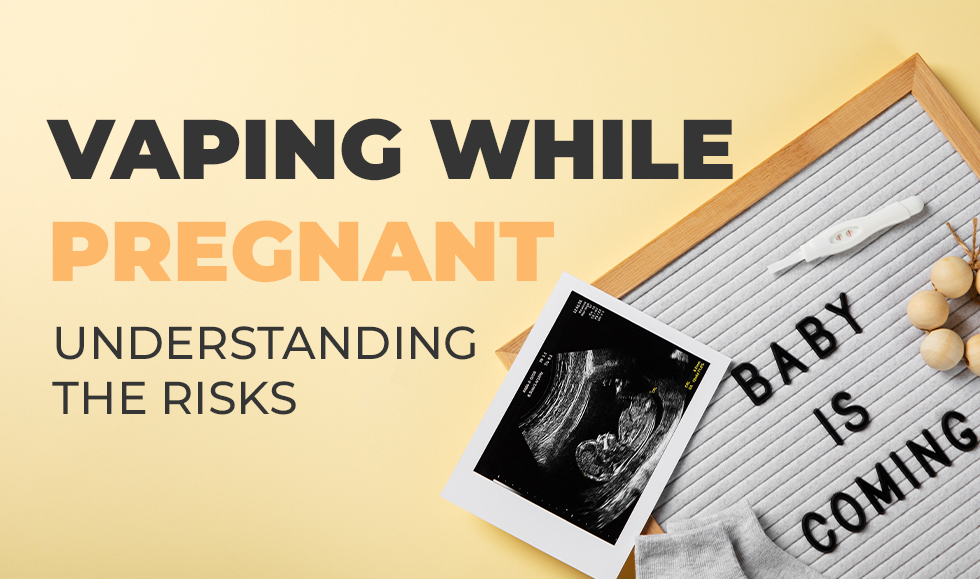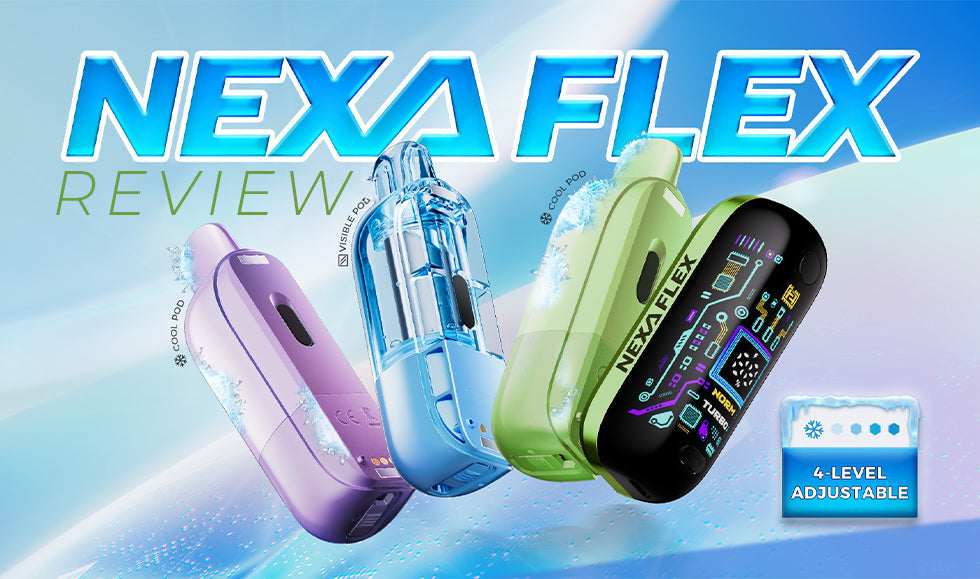Vaping is something that countless people have turned to as a way to get off of smoking cigarettes. Because vaping is tobacco-free, containing only nicotine as the common denominator, it’s largely seen as less harmful than smoking, as the latter comes with many chemical compounds that are known to be toxic and/or carcinogenic to the body.
Vaping has been around for over a decade now, and because of that, studies have been done to compare the safety of vaping to smoking cigarettes, with plenty of promising results. We also know exactly what’s in the e-liquids we vape: vegetable glycerin, propylene glycol, nicotine, and flavoring, none of which have been found to cause any major harm to the body.
However, there is one variable that isn’t talked about as much, and that would be pregnancy. So, is it safe to be well… vaping while pregnant? And how does it compare to smoking while pregnant? Let’s find out.
Can I Vape While Pregnant?
First and foremost, let’s make one thing clear right off the bat: it’s never safe to vape while pregnant. Maybe you’ve heard people say, 'Can you vape while pregnant?' or 'I vaped while pregnant and my baby is fine.' But, those people are lucky because nicotine is known to cause harm to a developing fetus, interfering with the development of their organs and causing potential brain damage.
Nicotine is a highly addictive substance found in almost all vaping products, and while it’s generally safe for adults, it’s not safe for babies – or children, for that matter. Smoking while pregnant is, of course, even more harmful because there are far more chemicals in there that are known to be highly dangerous to people of all ages, as well as growing fetuses.
It's not just the nicotine that’s the potential issue, either. While vegetable glycerin, propylene glycol, and flavoring ingredients are generally fine for us, they’ve never been tested on a fetus. That means we don’t know what kind of potential harm they can cause, and you don’t want to take the risk to find out, either.
Vaping Zero Nicotine While Pregnant
More and more vaping products are coming out that contain zero nicotine, and those are great for people who enjoy the act of vaping but still wish to quit nicotine once and for all. But, again, this isn’t safe for a pregnant person because like we said, the other ingredients in e-liquids have never been tested on a fetus and in fact, may be harmful. The only time in which it could be safe to vape a zero-nicotine product while pregnant would be in the extremely early stage of pregnancy (up to 8 weeks), in an effort to wean oneself off of vaping in preparation to quite entirely for the duration of the pregnancy.
The same applies to products containing tobacco-free nicotine, which are also popping up all over the market. Tobacco-free nicotine (TFN) is synthetic nicotine, and its main selling point is that it doesn’t contain traces of tobacco compounds. However, once again, nicotine is harmful to fetuses, whether it’s tobacco-derived or synthetic.
Is Secondhand Vapor Bad for Babies?
What about secondhand vapor, after the baby is born? Again, we strongly advise you to avoid it altogether. While no studies have been done on the effects of secondhand vapor and its exposure to babies, there are, again, chemicals in vaping products that can be harmful to a baby’s development – including nicotine. And, like we already touched upon, even nicotine-free vapes can be harmful when the vapor is delivered in secondhand form, as the other ingredients in e-liquids have not been tested on a baby’s body.
Of course, this means that it may not be safe to vape while breastfeeding, either. The ingredients in e-liquids could potentially transfer to a baby’s system via breast milk, which could potentially be harmful, regardless of whether or not the vaping product does contain nicotine.
Alternatives for Expecting Mothers
When it comes to pregnancy, it’s important to avoid nicotine products altogether, as well as vaping products that don’t contain nicotine. There really isn’t any “safe” alternative out there for getting your nicotine ‘fix’, so the key should be deciding how to stop vaping while pregnant rather than looking for a replacement.
There is something of a debate as to the effects that vaping products/nicotine products have on a baby during the embryonic stage – 8 weeks into pregnancy – when they’re less likely to experience birth defects. Still, a baby begins absorbing toxins once the embryo has implanted, and this happens days to a week after conception. So, any time you consume a harmful substance once you know you’re pregnant, you are putting your baby at risk.
Many experts agree that quitting smoking/vaping within 15 weeks of pregnancy produces the lowest risk of harm to the baby. Of course, the sooner you can do it, the better. And, while cold turkey is easily the most recommended option, we also appreciate that this can be really hard for pregnant mothers, who may also experience incredible stress when going into withdrawal that could potentially harm the baby.
Now, one last thing we want to mention is that if you are smoking cigarettes and have found out you’re pregnant, switching to vaping may be a way to quit. Switching to vaping allows the body to go through withdrawal from the many other chemical compounds in cigarettes, and from there, the mother can wean themselves off of vaping.
Bottom Line: Vaping is Never Safe When Pregnant
At the end of the day, it’s never okay to vape while pregnant. The key isn’t switching to another product to satisfy your cravings but to focus on quitting as soon as possible. An OB-GYN can offer more guidance on how to do so successfully, considering the extent of your addiction and how far along you are in your pregnancy. And remember that the risks of vaping apply not only when you’re pregnant but after the baby is born, so abstaining from vaping while breastfeeding is also strongly recommended.





